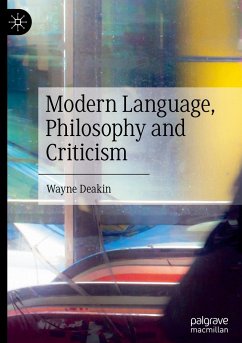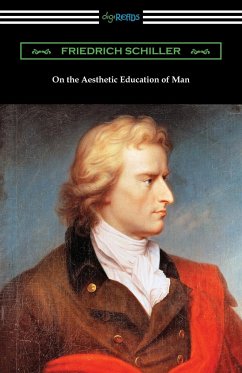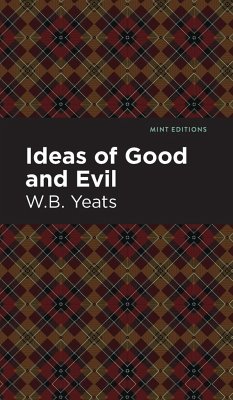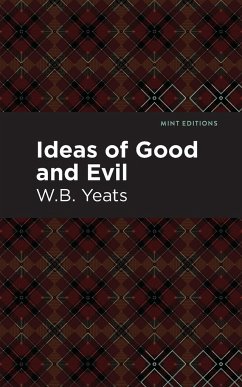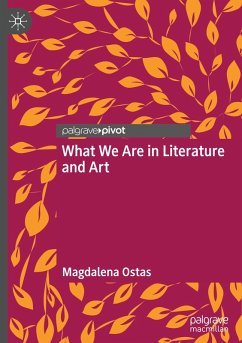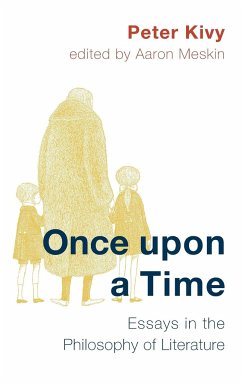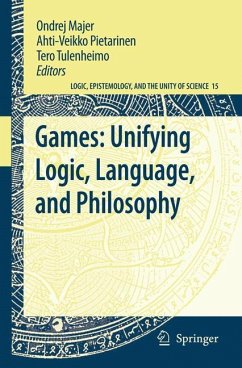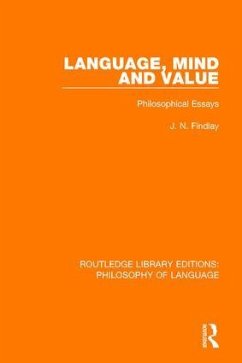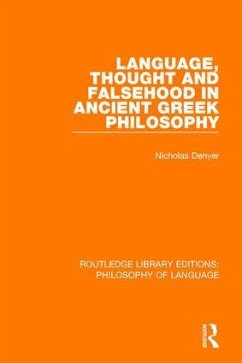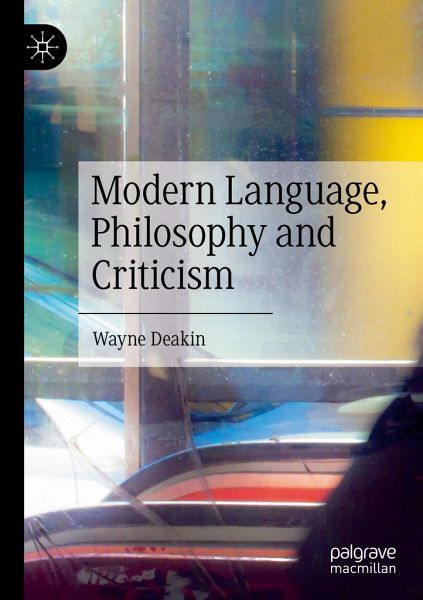
Modern Language, Philosophy and Criticism
Versandkostenfrei!
Versandfertig in 6-10 Tagen
91,99 €
inkl. MwSt.
Weitere Ausgaben:

PAYBACK Punkte
46 °P sammeln!
This books delineates the seismic shifts of the twentieth century humanities by way of a close examination of the dynamic landscape of modern language, criticism and philosophy. In this manner, it argues that both philosophy and literary criticism have dovetailed in the twenty-first century. Starting out as a survey of literary criticism in its broadest terms, later chapters - which are more expository - assess recent movements within modern literary theory. These are located with respect to the post-Russell and Fregean "linguistic turn" in philosophy.Designed for specialists and non-specialis...
This books delineates the seismic shifts of the twentieth century humanities by way of a close examination of the dynamic landscape of modern language, criticism and philosophy. In this manner, it argues that both philosophy and literary criticism have dovetailed in the twenty-first century. Starting out as a survey of literary criticism in its broadest terms, later chapters - which are more expository - assess recent movements within modern literary theory. These are located with respect to the post-Russell and Fregean "linguistic turn" in philosophy.
Designed for specialists and non-specialists alike; philosophers, literary critics and even students of the modern critical tradition, the argument takes a novel stance towards modern criticism, language and philosophy, arguing for a return to a more formalist and rhetorical approach to literary criticism, while taking care not to indulge too many "political pathologies" when engaging with texts.
Designed for specialists and non-specialists alike; philosophers, literary critics and even students of the modern critical tradition, the argument takes a novel stance towards modern criticism, language and philosophy, arguing for a return to a more formalist and rhetorical approach to literary criticism, while taking care not to indulge too many "political pathologies" when engaging with texts.



